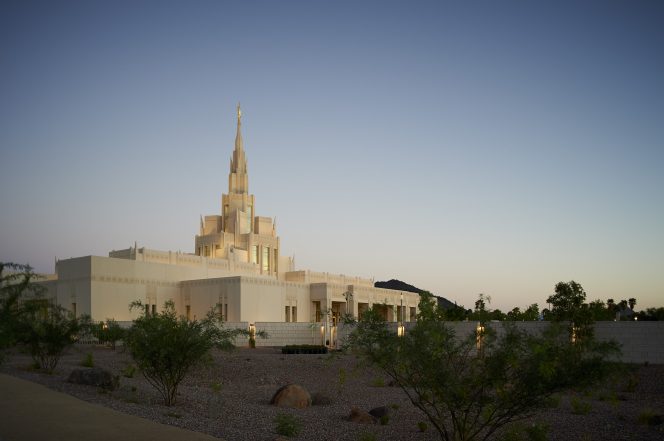
***
I’ve enjoyed the work of Stephen T. Davis, Russell K. Pitzer Emeritus Professor of Philosophy at Claremont McKenna College in California, for a long time. Some time ago, I read his 2015 book After We Die: Theology, Philosophy, and the Question of Life after Death.
Latter-day Saints don’t believe in the traditional Christian concept of hell. (Moreover, I personally lean toward a modified form of near-universalism.) But I’ve just finished reading Professor Davis’s defense of the concept of hell — he identifies himself as a believing and relatively conservative Protestant Christian — and I excerpt a couple of passages from it because . . . well, because I agree with them:
[H]ell is separation from God in the sense of being cut off from the source of all love, joy, peace, and light. There is no deep or ultimate joy in hell, and I believe its denizens are miserable. To be apart from the source of love, joy, peace, and light is to live miserably.
But why are the damned in hell? As noted, I am not much attracted to the idea of retribution, although there are biblical texts that might be taken to support the idea. To put the point bluntly, I believe they are in hell because they choose to be there. People are not sent to hell, kicking and screaming, against their wills. Unfortunately, some people choose to live their lives apart from God; they harden their hearts and will continue to say no to God after death; some will doubtless do so forever. For such people, the prospect of living in the presence of God will seem worse than living apart from God. Allowing them to live forever in hell is simply God’s continuing to grant them the freedom that they experienced in this life to say yes or no to God. Nevertheless, I suspect the people in hell are deeply remorseful.
Can people both freely choose hell over heaven, knowing that they would be unable to endure heaven, but still regret the fact that they cannot happily choose heaven? Yes, I believe that this is quite possible. There are people who can carry a grudge against an enemy for years despite realizing that it would be better for all concerned if they forgave the enemy and moved on with their lives. Moreover, the evidence that we have from this life is that some people will go on denying God forever. Their hostility will grow; their hearts will grow ever harder. People in hell will surely suffer, but their suffering will be largely self-inflicted. Moreover, I suspect that they will cause each other to suffer; that is, they will inflict pain on others who are within reach.
It might be objected that the notion that some people will voluntarily choose hell might make sense initially (i.e., immediately after death) but that the idea that they will do so everlastingly does not. And it is certainly true that heaven will always be the most sensible option. But, again, I hold that people who continue voluntarily to choose hell (even if we grant that they will always be offered the option of repenting and being promoted to heaven) will not be sensible. Their hatred of God will have overcome them. (95-96)
Is the existence of hell consistent with the loving and gracious nature of God? Yes, it is. Some Christians try to justify the existence of hell by viewing it as the “natural consequence” of a life of sin. I accept the notion that hell is a natural consequence of a life of rebellion against God (and, in that sense, hell is a punishment). But this point does not in itself justify God in condemning people to hell, because it does not justify the divinely ordained laws of natural necessity that make hell sin’s natural consequence. My claim, then, is that the denizens of hell are in hell because they freely choose to be there. That is, they freely choose not to live in the presence of God. If so, then hell is not only an expression of divine justice but of divine love as well. And hell will exist eternally because the hearts of some of the condemned will grow ever and ever harder against God. They will never choose anything other than hell. (96)
For the record, Professor Davis — who is a Protestant Christian — entertains at least the hypothetical possibility of postmortem salvation (rather like that in which Latter-day Saints believe, including even a reference to 1 Corinthians 15:29 and its mention of baptism on behalf of the dead), which might offer the inhabitants of hell a chance to leave it. He simply thinks that some in hell will refuse that choice. I believe — as hard as it may be to imagine — that that is indeed the case.
***
I’m very much looking forward to reading this study or “statement”:
““Near-Death Experiences” Are Not Hallucinations, Says First-Ever Study Of Its Kind”
Thanks to Nanakat Woodbury for calling it to my attention.
***
And, finally, after a period of cruel neglect, I have something to share with you once again from the deliciously horrifying Christopher Hitchens Memorial “How Religion Poisons Everything” File©. It was kindly brought to my notice by Dr. Lynn Johnson:
TO OBTAIN A COPY OF THE ARTICLE: Contact info for reprint requests and questions or other correspondence about this article: Fábio Duarte Schwalm, Family Physician, Conceição Hospital Group – GHC, Av. Francisco Trein, 596 – Cristo Redentor, Porto Alegre, RS 91350-200, Brazil — Email: [email protected]











